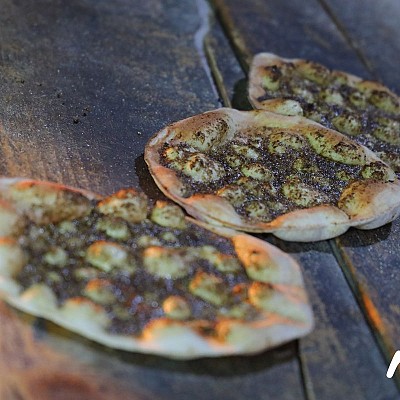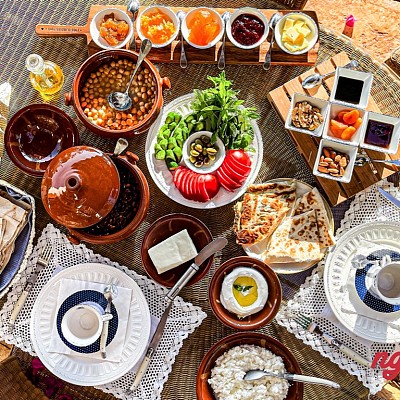HONEY, BEES & BEEKEEPERS: Funday in the Chouf, Learning, Eating & Celebrating "World Bee Day"
- Lebanese Honey Video
- Live with Emm Jihad
- Live with Raed
- Celebrate World Bee Day on May 20: "Bee Engaged"
- HONEY: The World Depends on the Survival of Bees!
For centuries bees, among the hardest working creatures on the planet, have benefited people, plants and the environment. By carrying pollen from one flower to another, bees and other pollinators enable not only the production of an abundance of fruits, nuts and seeds, but also more variety and better quality, contributing to food security and nutrition. (FAO) Pollinators such as bees, birds and bats, affect 35 percent of the world's crop production, increasing outputs of 87 of the leading food crops worldwide, plus many plant-derived medicines. Three out of four crops across the globe producing fruits or seeds for human use as food depend, at least in part, on pollinators. Why a World Bee Day? By observing World Bee Day each year, we can raise awareness on the essential role bees and other pollinators play in keeping people and the planet healthy, and on the many challenges they face today. We have been celebrating this day since 2018, thanks to the efforts of the Government of Slovenia with the support of Apimondia, that led the UN General Assembly to declare 20 May as World Bee Day.

The date for this observance was chosen as it was the day Anton Janša, a pioneer of modern apiculture, was born. Janša came from a family of beekeepers in Slovenia, where beekeeping is an important agricultural activity with a long-standing tradition. Today bees, pollinators, and many other insects are declining in abundance. This day provides an opportunity for all of us – whether we work for governments, organizations or civil society or are concerned citizens – to promote actions that will protect and enhance pollinators and their habitats, improve their abundance and diversity, and support the sustainable development of beekeeping.

Bees are not only extremely important for humans, but also for entire ecosystems to function. As we know, bees allow plants to reproduce through pollination. These plants contribute to the food system by feeding animals – aside from humans – such as birds and insects. But be sure to consume no more than 6 teaspoons (2 tablespoons) of honey per day, and that's if it's the ONLY added sugar you're eating. If you're getting sugar from other sources, make sure your total sugar intake does not top 6 teaspoons. Honey might not come to mind when thinking about Lebanese food products. But Lebanon has a deeply rooted history with the gold nectar; it was even mentioned in the Old Testament.

Though honey production may have receded from the forefront of the Lebanese agro-industry since the days of the Bible, it has garnered increased attention since 2012, thanks in part to international non-governmental organizations. And while a lot of work still needs to be done to further develop the honey industry, the past five years have seen many steps in the right direction.

















































































